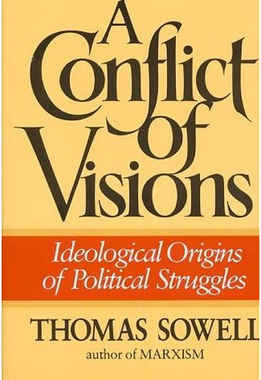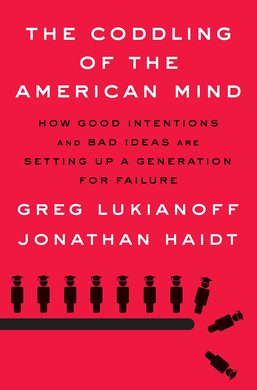
Morality is the differentiation of intentions, decisions and actions between those that are distinguished as proper (right) and those that are improper (wrong). Morality can be a body of standards or principles derived from a code of conduct from a particular philosophy, religion or culture, or it can derive from a standard that a person believes should be universal. Morality may also be specifically synonymous with "goodness", "appropriateness" or "rightness".
Moral universalism is the meta-ethical position that some system of ethics, or a universal ethic, applies universally, that is, for "all similarly situated individuals", regardless of culture, race, sex, religion, nationality, sexual orientation, gender identity, or any other distinguishing feature. Moral universalism is opposed to moral nihilism and moral relativism. However, not all forms of moral universalism are absolutist, nor are they necessarily value monist; many forms of universalism, such as utilitarianism, are non-absolutist, and some forms, such as that of Isaiah Berlin, may be value pluralist.
Moral reasoning is the study of how people think about right and wrong and how they acquire and apply moral rules. It is a subdiscipline of moral psychology that overlaps with moral philosophy, and is the foundation of descriptive ethics.

A Conflict of Visions is a book by Thomas Sowell. It was originally published in 1987; a revised edition appeared in 2007. Sowell's opening chapter attempts to answer the question of why the same people tend to be political adversaries in issue after issue, when the issues vary enormously in subject matter and sometimes hardly seem connected to one another. The root of these conflicts, Sowell claims, are the "visions", or the intuitive feelings that people have about human nature; different visions imply radically different consequences for how they think about everything from war to justice.
Moral psychology is a field of study in both philosophy and psychology. Historically, the term "moral psychology" was used relatively narrowly to refer to the study of moral development. Moral psychology eventually came to refer more broadly to various topics at the intersection of ethics, psychology, and philosophy of mind. Some of the main topics of the field are moral judgment, moral reasoning, moral sensitivity, moral responsibility, moral motivation, moral identity, moral action, moral development, moral diversity, moral character, altruism, psychological egoism, moral luck, moral forecasting, moral emotion, affective forecasting, and moral disagreement.
In moral psychology, social intuitionism is a model that proposes that moral positions are often non-verbal and behavioral. Often such social intuitionism is based on "moral dumbfounding" where people have strong moral reactions but fail to establish any kind of rational principle to explain their reaction.
The wisdom of repugnance or "appeal to disgust", also known informally as the yuck factor, is the belief that an intuitive negative response to some thing, idea, or practice should be interpreted as evidence for the intrinsically harmful or evil character of that thing. Furthermore, it refers to the notion that wisdom may manifest itself in feelings of disgust towards anything which lacks goodness or wisdom, though the feelings or the reasoning of such 'wisdom' may not be immediately explicable through reason.
Richard Allan Shweder is an American cultural anthropologist and a figure in cultural psychology. He is currently Harold H. Swift Distinguished Service Professor of Human Development in the Department of Comparative Human Development at the University of Chicago.

Jonathan David Haidt is an American social psychologist and author. He is the Thomas Cooley Professor of Ethical Leadership at the New York University Stern School of Business. His main areas of study are the psychology of morality and moral emotions.
Elliot Turiel is a psychologist and Distinguished Professor in the Berkeley School of Education at the University of California, Berkeley. He teaches courses on human development and its relation to education. He was born in Rhodes, Greece.
The medium of television has had many influences on society since its inception. The belief that this impact has been dramatic has been largely unchallenged in media theory since its inception. However, there is much dispute as to what those effects are, how serious the ramifications are and if these effects are more or less evolutionary with human communication.
The evolutionary psychology of religion is the study of religious belief using evolutionary psychology principles. It is one approach to the psychology of religion. As with all other organs and organ functions, the brain's functional structure is argued to have a genetic basis, and is therefore subject to the effects of natural selection and evolution. Evolutionary psychologists seek to understand cognitive processes, religion in this case, by understanding the survival and reproductive functions they might serve.
Hypocrisy is the practice of feigning to be what one is not or to believe what one does not. The word "hypocrisy" entered the English language c. 1200 with the meaning "the sin of pretending to virtue or goodness". Today, "hypocrisy" often refers to advocating behaviors that one does not practice. However, the term can also refer to other forms of pretense, such as engaging in pious or moral behaviors out of a desire for praise rather than out of genuinely pious or moral motivations.

The Happiness Hypothesis: Finding Modern Truth in Ancient Wisdom is a 2006 book written by American social psychologist Jonathan Haidt. In it, Haidt poses several "Great Ideas" on happiness espoused by thinkers of the past—such as Plato, Buddha and Jesus—and examines them in the light of contemporary psychological research, extracting from them any lessons that still apply to our modern lives. Central to the book are the concepts of virtue, happiness, fulfillment, and meaning.
Political ethics is the practice of making moral judgments about political action and political agents. It covers two areas: the ethics of process, which covers public officials and their methods, and the ethics of policy, which concerns judgments surrounding policies and laws.
Moral foundations theory is a social psychological theory intended to explain the origins of and variation in human moral reasoning on the basis of innate, modular foundations. It was first proposed by the psychologists Jonathan Haidt, Craig Joseph, and Jesse Graham, building on the work of cultural anthropologist Richard Shweder. More recently, Mohammad Atari, Jesse Graham, and Jonathan Haidt have revised some aspects of the theory and developed new measurement tools. The theory has been developed by a diverse group of collaborators and popularized in Haidt's book The Righteous Mind. The theory proposes that morality is "more than one thing", first arguing for five foundations, and later expanding for six foundations :

Joshua David Greene is an American experimental psychologist, neuroscientist, and philosopher. He is a professor of psychology at Harvard University. Most of his research and writing has been concerned with moral judgment and decision-making. His recent research focuses on fundamental issues in cognitive science.
Elevation is an emotion elicited by witnessing actual or imagined virtuous acts of remarkable moral goodness. It is experienced as a distinct feeling of warmth and expansion that is accompanied by appreciation and affection for the individual whose exceptional conduct is being observed. Elevation motivates those who experience it to open up to, affiliate with, and assist others. Elevation makes an individual feel lifted up and optimistic about humanity.

The Coddling of the American Mind: How Good Intentions and Bad Ideas Are Setting Up a Generation for Failure is a 2018 book by Greg Lukianoff and Jonathan Haidt. It is an expansion of a popular essay the two wrote for The Atlantic in 2015. Lukianoff and Haidt argue that overprotection is having a negative effect on university students and that the use of trigger warnings and safe spaces does more harm than good.
Moral emotions are a variety of social emotions that are involved in forming and communicating moral judgments and decisions, and in motivating behavioral responses to one's own and others' moral behavior. As defined by Jonathan Haidt, moral emotions "are linked to the interests or welfare either of a society as a whole or at least of persons other than the judge or agent". A person may not always have clear words to articulate, yet simultaneously, that same person knows it to be true deep down inside.







